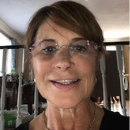Reflecting on National Indigenous Peoples Day brings back memories
of my childhood in a small town in northwestern Ontario. As a young girl, I attended public school where
both Indigenous and non-Indigenous students studied together. Every morning, the school buses arrived with Indigenous
students from a residential school about 10 miles out of town. We all went to class, played during recess,
and formed teams without any distinction. At the end of the day, the Indigenous
students would line up for the bus only to return the next day. The rest of us went home. And so it went.
However, as I entered adulthood, I began to grasp the
gravity of the situation for those Indigenous students and their parents. I learned that their daily routine of
returning to the residential school every evening was part of a much deeper and
more complex reality. It was a reality marked by the separation from their
families, the loss of cultural practices, and the struggles faced within the
residential school system.
As I delved into understanding Indigenous cultures, I
discovered the profound love they have for themselves and their deep connection
to their communities. Their heritage is rich with a culture of respect and
appreciation for the land and all it has to offer. It became evident to me that
their celebration of culture and heritage on June 21 or around the summer
solstice holds great significance.
The summer solstice, the longest day of the year, is a time
when Indigenous groups and communities have traditionally gathered to honor
their traditions, ancestors, and the natural world. It is a time to celebrate
the resilience and strength of Indigenous cultures, highlighting their deep
connection to the land and their continued contributions to society.
Respect and Inclusion are some of the core values we embody
at Winpak. These values perfectly align
with Winpak’s Diversity, Equity and Inclusion (DEI) policy which provides the
guiding principles for a company culture that celebrates diverse perspectives
and encourages compassionate action.
Learning about Indigenous culture is an ongoing journey. I
have begun that journey and I still have a lot to learn. National Indigenous
Peoples Day provides us with an opportunity to learn about Indigenous
traditions, history, beliefs, struggles, and the meaning of treaty rights and
self-determination. Working at Brandon University exposed me to the
Seven
Sacred/Grandfather Teachings which
is a set of teachings on human conduct towards others. Each teaching honors one of the basic virtues
of a full and healthy life. You cannot
have one virtue without the others.
To learn more about Indigenous cultures and National Indigenous
Peoples Day in Canada, please explore the following resources:
Online
resources: Various websites offer educational materials and
information on Indigenous cultures. The Government of
Canada's website provides resources on
National Indigenous Peoples Day, including historical information and events
happening across the country. Indigenous organizations and communities may also
have their own websites or social media platforms where they share cultural
knowledge and events.
Public
events and celebrations: Check local listings
for National Indigenous Peoples Day events in your area. Many cities and
communities organize festivals, powwows, concerts, and art exhibitions that
showcase Indigenous cultures and traditions.
I encourage everyone to participate in the various
activities offered at their respective workplaces and in communities across
Canada to increase your understanding and help celebrate Indigenous culture.
Without understanding and knowledge, there will not be meaningful change. By recognizing the profound connection of Indigenous
people to the land and their enduring resilience, we can work towards a more
inclusive and equitable future for all.

Author
Sharon Hooper
Vice President, Human Resources
Winnipeg, MB Canada
sharon.hooper@winpak.com
Submit a comment